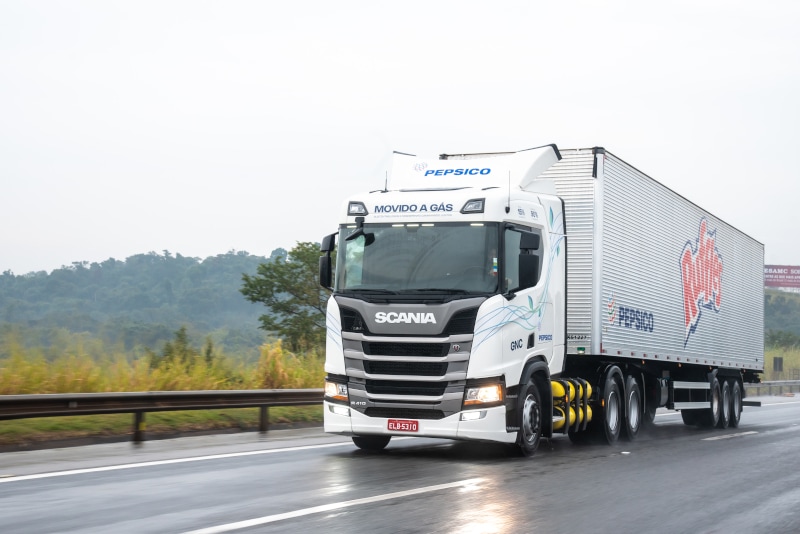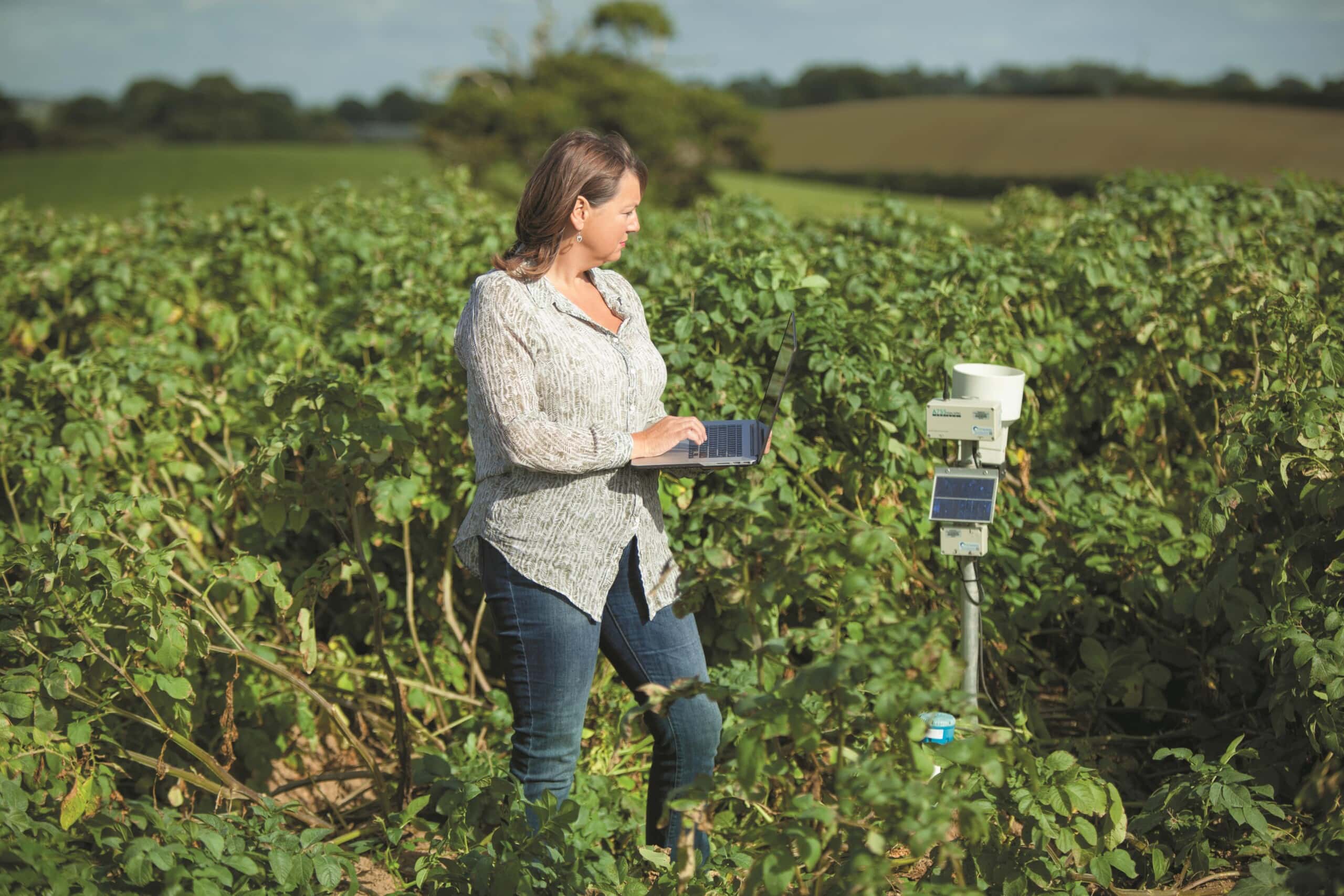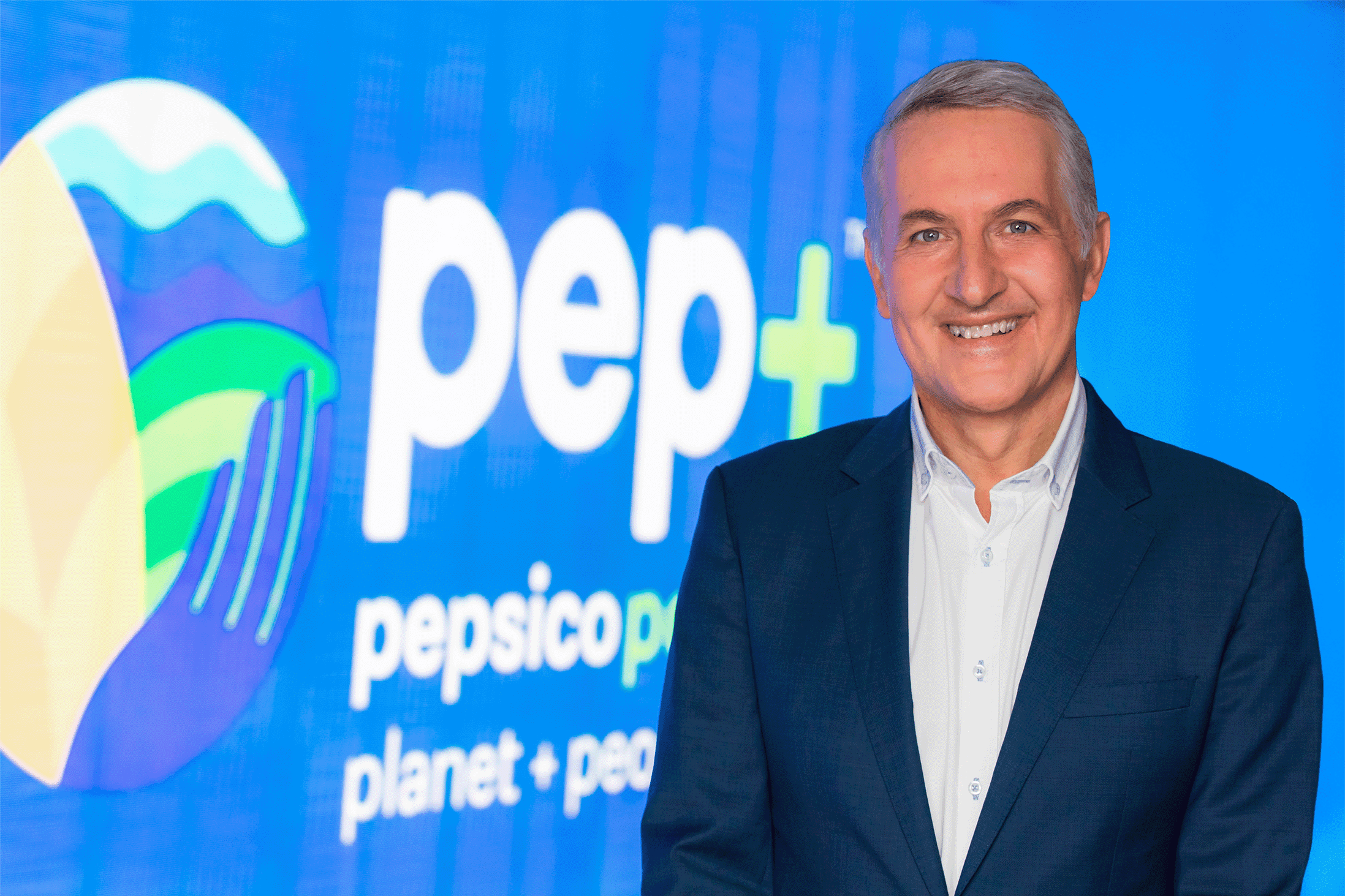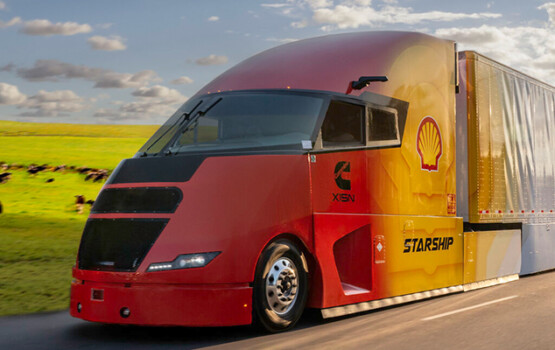Portal for more climate-friendly mobility

PepsiCo invests in biogas plant
PepsiCo, one of the world’s largest food and beverage manufacturers, has long maintained a fleet that is as sustainable as possible so as to reduce CO2 emissions, also using biogas trucks for this purpose. The parent company Pepsi is now expanding the idea of the circular economy further: one of its latest measures is to invest millions in a biogas plant in Portugal.
 One of the CNG Scanias on the road in Brazil for beverage and food giant PepsiCo, helping to reduce CO2 emissions from the logistics chain. Source: Scania/PepsiCo
One of the CNG Scanias on the road in Brazil for beverage and food giant PepsiCo, helping to reduce CO2 emissions from the logistics chain. Source: Scania/PepsiCo
For years now, PepsiCo has maintained a logistics fleet which is sustainable as possible. The manufacturer of the world-famous soft drink Pepsi, as well as other products such as 7Up, and the famous Ruffles or Lays crisps, is looking to reduce its CO2 emissions by up to 40% by 2030. This was why the company decided to buy 18 CNG-powered Scanias in Brazil back in 2020, for example. It was the largest acquisition of such vehicles in Brazil’s history at the time. “We take on responsibility for reducing CO2 emissions,” said João Campos, CEO of PepsiCo Brazil.
 The sustainable use of resources, whether water or energy sources, is very important to PepsiCo, not only in the production of potatoes for its chips. Source: PepsiCo
The sustainable use of resources, whether water or energy sources, is very important to PepsiCo, not only in the production of potatoes for its chips. Source: PepsiCo
“Measures such as the use of biogas trucks allow us to become more carbon neutral in our supply chain, which is fundamental to our global goal of reducing greenhouse gas emissions,” explained Campos when the company took on the first CNG trucks three years ago. Designed for medium- and long-haul routes, the ten Scania G 340 4×2 and eight Scania R 410 6×2 made such an impression in South America that the sustainable transport fleet was supplemented with twelve additional CNG vehicles last year. “Scania’s CNG and biogas solutions are a viable way of helping companies in Brazil make the transition to a more sustainable transportation system,” said Silvio Munhoz, Director General of Commercial Operations at Scania Brazil.
 PepsiCo CEO Ramon Laguarta not only relies on biogas for mobility, but also attaches great importance to sustainability in other areas. Source: PepsiCo
PepsiCo CEO Ramon Laguarta not only relies on biogas for mobility, but also attaches great importance to sustainability in other areas. Source: PepsiCo
But the acquisition of the biogas trucks in Brazil is only part of the global corporate strategy “PepsiCo Positive” – or “pep+” for short. This aims to strengthen the company’s positive impact on sustainability and the environment across the board. CEO Ramon Laguarta’s major corporation has opted for biogas not only in the area of mobility, but also in connection with other aspects of its sustainability efforts. For example, PepsiCo Portugal is investing a total of 7.5 million francs in a biogas plant for a snack facility in Carregado, north of Lisbon.
The new biogas plant will use sewage sludge, potato skins and other non-consumer biogenic residues from the plant’s sewage treatment plant. In addition to reducing CO2 emissions, the new plant also will also help reduce gas consumption: the new fermenter will be able to convert over 21.900 tonnes of organic waste into around 4.8 million cubic metres of biogas per year, “enabling a 30% reduction in carbon emissions during the production process,” says Nelson Sousa, Plant Manager of PepsiCo Portugal. According to Sousa, this sustainability solution is a good example of a functioning circular economy.
 In Brazil, the major corporation even added 12 more CNG-powered trucks to its CNG fleet last year, which can be almost CO2-neutral on the road thanks to biogas in the tank. Source: Scania/PepsiCo
In Brazil, the major corporation even added 12 more CNG-powered trucks to its CNG fleet last year, which can be almost CO2-neutral on the road thanks to biogas in the tank. Source: Scania/PepsiCo
Construction of the biogas plant is set to begin in April 2023. “We’re proud to launch this pioneering project in Southern Europe. It’s a major step in the transformation process towards a positive value chain,” explains Fernando Moraga of PepsiCo Portugal. “The new biogas plant will allow us to work more efficiently with our resources by creating alternative energy solutions.” Beverage and food giant PepsiCo not only uses self-produced biogas: it has also implemented a project in Carregado to reuse heat from the ovens to make Doritos. This allows energy to be recovered from the chimney and steam to be generated, thereby further reducing gas consumption in the factory by about five per cent. (pd/jas, 09 February 2023)
You might also be interested in

Shell Starship on record hunt
